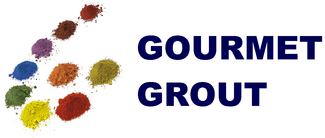Sealing Grout
Do I have to seal my grout?
Grout used for architectural applications such as floors, walls, tubs, showers, counter tops, and backsplashes should be sealed to prevent staining and water absorption and to protect the color. For decorative mosaics which will be used indoors, and will not come in contact with moisture, sealing is optional.
Always consult and follow the manufacturer's instructions for your tile but, in general, if using a glazed floor tile, seal only the grout. Unglazed ceramic and porcelain tile and natural stone such as slate should be sealed along with the grout.
What kind of sealer should I use?
There are two basic types of sealers for grout: topical and penetrating.
Topical sealers coat the surface of the grout. They're usually the less expensive of the two types, but are more sensitive to wear and tear and surface abrasion than penetrating sealers. They generally require a longer drying period for the grout before they can be applied than penetrating sealers do.
Penetrating sealers form a chemical bond with the surface of the grout, are more durable and can be applied sooner than topical sealers.
If using grout on a kitchen counter-top or any other surface which food will contact, be sure to use a food-safe grout sealer
How long should I wait after grouting before I can seal my grout?
Grout should cure for a minimum of 72 hours prior to use of a sealer. You should always check with the manufacturer of the grout sealer to determine if the grout must cure for a longer period of time before using any particular sealing product.
